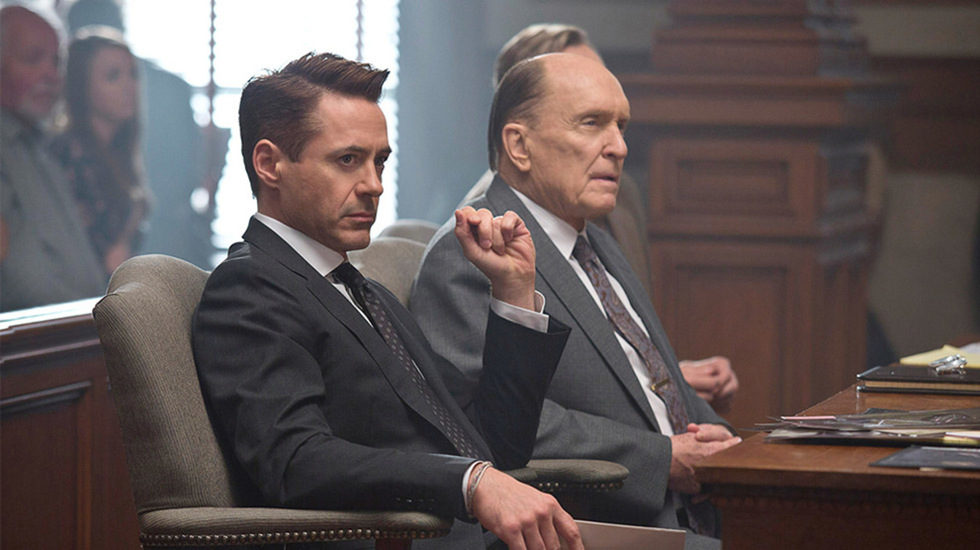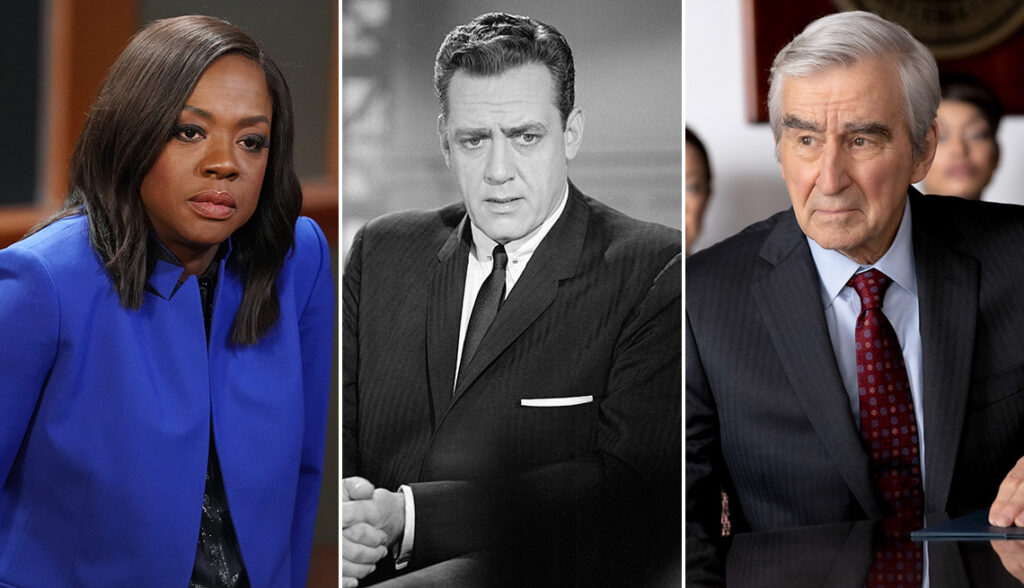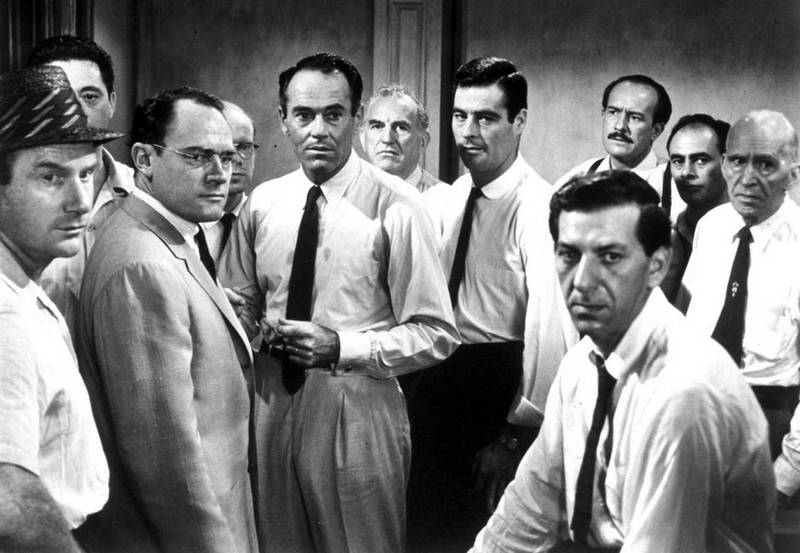Legal Realism on the Silver Screen: Analyzing the Accuracy of Law in Movies

The portrayal of legal proceedings in movies has long been a source of fascination for audiences worldwide. From gripping courtroom dramas to thrilling legal thrillers, films often take creative liberties with the legal system to enhance the drama and storytelling. But how accurately do these cinematic depictions reflect real-world legal processes? In this article, we delve into the world of legal realism in movies, examining the accuracy, the impact, and the blurred lines between Hollywood’s version of justice and the courtroom reality.
If you wish to become an actor, maybe you should take the best career for me quiz first to figure out if that is just the right profession for you or not and it only takes a few minutes!
The Allure of Legal Dramas

Hollywood’s fascination with legal dramas has given birth to some of the most iconic films in cinematic history. These movies often captivate audiences with intense courtroom scenes, charismatic lawyers, and shocking revelations. They draw viewers into a world where justice is served within a couple of hours, neatly wrapped up in a compelling narrative.
If you want to travel to LA to visit one of the movie sets you can rent a vehicle from rent a car Beograd.
However, legal dramas are not documentaries. They are crafted for entertainment, and as such, certain liberties are taken with legal proceedings. These departures from reality can sometimes be minor, but in other cases, they can significantly distort our perceptions of the legal system.
For instance, a classic courtroom confrontation between a defense attorney and a prosecutor often ends with a dramatic revelation or a passionate monologue that sways the jury. While this makes for great cinema, real trials are rarely so theatrical. Lawyers must adhere to rules of evidence, and verdicts are usually based on facts, not dramatic flair. If you are a lawyer and you are having problems with allergies it can really affect your job. You should do the allergy testing in Marietta GA.
Beyond the courtroom theatrics, legal dramas often delve into the personal lives of lawyers, adding layers of complexity to their characters. This humanization of legal professionals helps us connect with them on a deeper level, even if it sometimes strays from reality. The struggles, moral dilemmas, and ethical choices faced by these characters mirror the challenges that lawyers may encounter in their careers.
The Impact on Public Perception
Movies wield immense influence over public perception. When it comes to legal matters, the impact is no less profound. The portrayal of lawyers and judges on the silver screen can shape how society views the legal profession.
The charismatic, rule-bending lawyer who always wins in the end might lead viewers to believe that legal success is solely determined by wit and cunning, rather than meticulous preparation and adherence to the law. If you wish to help amateur directors and partake in funding their movie projects, you can locate them easily by signing up at loan servicing for hard money lenders and lending them money for a profit.
On the flip side, films that depict a corrupt and biased legal system can breed distrust in real-world courts. It’s crucial to recognize that while there have been instances of corruption and injustice in the legal world, these are not the norm. Legal systems are built upon principles of fairness, and most legal professionals take their ethical obligations seriously.
Movies can also shed light on important social issues, using legal settings as a backdrop to address topics like discrimination, civil rights, and social justice. When handled well, these films can raise awareness and inspire change. However, they must be approached with critical thinking, as they may oversimplify complex issues.
The Evolution of Legal Realism in Film
Over the years, the portrayal of law in movies has evolved. Earlier films tended to idealize legal heroes and simplify legal processes. Think of Atticus Finch in “To Kill a Mockingbird” as the embodiment of a noble attorney.
In contrast, modern legal dramas often delve into the moral and ethical dilemmas faced by lawyers. They explore the gray areas of the legal system, showcasing its flaws and complexities. This shift towards greater realism has been both praised and criticized, with some arguing that it demystifies the legal profession while others appreciate its nuanced storytelling.
An example of this evolution can be seen in the film “Michael Clayton.” The titular character, played by George Clooney, is a morally conflicted attorney who must navigate a web of corruption and deceit. This film doesn’t shy away from portraying the legal world’s darker aspects, providing a more realistic and morally ambiguous representation.
As legal realism continues to evolve, filmmakers have the opportunity to challenge stereotypes and shed light on the multifaceted nature of the legal profession. The best legal films today combine elements of realism with compelling storytelling, inviting audiences to grapple with complex ethical questions alongside the characters.
The Role of Legal Experts in Filmmaking
To achieve a higher level of accuracy, some filmmakers have turned to legal experts for guidance. These experts can ensure that courtroom scenes, legal terminology, and procedures align more closely with reality.
However, even with expert consultation, artistic license often prevails. Filmmakers prioritize storytelling over strict adherence to legal minutiae. While this can lead to inaccuracies, it’s a necessary compromise to maintain the narrative’s flow and engagement. Many famous actors love to play best drinking games after attending important events and reaching the afters.
One notable example of expert consultation is the TV series “The Good Wife.” Legal consultants were employed to ensure that the legal proceedings portrayed on screen were as authentic as possible. This attention to detail added depth to the show’s storytelling and garnered praise from legal professionals.
Legal experts in filmmaking play a critical role in bridging the gap between cinematic storytelling and real-world legal processes. Their input can enhance the authenticity of legal dramas, making them more engaging for audiences who appreciate accuracy.
Lawyers in movies always have amazing hair and if you want your hair to look like that you should try the best dry shampoo.
Legal Realism as a Reflection of Society

The evolution of legal realism in film is not solely a result of changing cinematic tastes but also reflects shifts in society’s perception of the legal system. As our understanding of justice and the law becomes more nuanced, so too do the movies that depict these themes.
Early legal films, such as “12 Angry Men,” often presented a simplified view of justice, where right and wrong were clear-cut. These films reflected a time when society yearned for clear moral lines and uncomplicated resolutions. Many old actors from the 20th have, thanks to assisted living pharmacy services, managed to live long, healthy, and enjoyable lives to as far as today!
However, as society has grown more complex, so have our expectations of legal realism. We now appreciate stories that challenge our preconceived notions of right and wrong. Films like “A Few Good Men” explore the moral gray areas within the legal profession, where even the most principled individuals may face difficult choices.
This evolution mirrors our own willingness to confront the complexities of the legal system. It acknowledges that justice is not always easily defined, and the law itself can be a source of both good and harm. Just as we seek out thought-provoking films, we also desire spaces of relaxation and indulgence in our lives, like a luxury salon in Toronto where we can unwind and rejuvenate. Legal realism in modern cinema reflects our collective desire for stories that mirror the ethical dilemmas we encounter in the real world.
An interesting aspect of this evolution is the blurring of lines between the hero and the anti-hero. In earlier films, lawyers were often portrayed as unwavering champions of justice. But as legal realism has matured, so have the characters. Lawyers like Al Pacino’s Frank Galvin in “The Verdict” grapple with their own flaws and ethical ambiguities, making them more relatable and human.
If you want to become an actor in Hollywood you may have to opt for plastic surgery and you should speak with an expert such as Cheyanne Mallas.
Impact on Legal Education
Legal dramas have also influenced the field of legal education. Law schools and legal educators have recognized the power of film in conveying complex legal concepts and ethical dilemmas to students. If you want to educate yourself in this field you can check out homeschooling tutoring in Bettendorf.
Movies like “To Kill a Mockingbird” are frequently used in law school classrooms to discuss topics like racial discrimination, ethics, and the role of lawyers in society. These films serve as valuable teaching tools, allowing students to connect emotionally with legal issues and encouraging critical thinking about the law’s impact on society. Did you know that after filming every scene in this movie the cast would go out to eat frozen yogurt in Scottsdale AZ?
The use of film in legal education extends beyond the classroom. Many law schools host film screenings and panel discussions, inviting legal experts and filmmakers to provide insights into the accuracy and ethical implications of legal depictions in cinema.
Moreover, the influence of legal films can be seen in the career choices of aspiring lawyers. Some individuals are inspired to pursue careers in law after watching charismatic lawyers on screen, while others are motivated to address social justice issues highlighted in movies.
Legal Realism and Social Justice
Legal realism in film has not only shaped our perceptions of the legal system but has also been a powerful tool for advocating social justice causes.
Films like “Philadelphia”, which addresses AIDS discrimination in the workplace, played a pivotal role in raising awareness and changing public attitudes towards LGBTQ+ rights and healthcare access. These movies function as catalysts for important societal discussions and often lead to policy changes and legal reforms. A lot of courtrooms have special blinds like blinds in Utah County.
Additionally, legal realism has been instrumental in shedding light on systemic issues within the criminal justice system. Films like “The Central Park Five” and “Just Mercy” have highlighted the wrongful convictions of individuals and the racial biases present in the legal system. These stories compel audiences to consider the broader implications of such injustices and to demand reform.
In this way, legal realism in film serves as a bridge between the legal world and the broader social and political landscape. It has the power to motivate action, change perceptions, and encourage individuals to engage with critical legal and social issues.
If you want to move to LA to become a filmmaker you can contact a mortgage broker in Raleigh NC to find you the best home.
The Influence of Legal Realism on Filmmaking
Filmmakers continually push the boundaries of legal realism, seeking new ways to engage audiences and provoke thought. The success of legal dramas like “The Social Network” and “The Big Short,” which explore complex legal and financial issues, demonstrates the enduring appeal of legal themes in cinema. Filmmakers also try to create realistic courtrooms by adding small details like window blinds. They often work with a company that makes window blinds in Colorado Springs for that.
Furthermore, the intersection of technology and the law has provided fertile ground for filmmakers to explore novel legal dilemmas. Movies like “Ex Machina” and “Her” delve into questions of artificial intelligence, ethics, and legal personhood, challenging viewers to contemplate the legal implications of emerging technologies.
If you are interested in making your own movie you can enroll in filmmaking courses.
These films illustrate how the concept of legal realism has expanded beyond traditional courtroom dramas to encompass a wide range of legal and ethical issues. As technology continues to advance and society grapples with new challenges, legal realism in film will evolve to reflect these changing landscapes.
Legal Realism and the Future of Cinema

The future of legal realism in cinema is both exciting and uncertain. As filmmakers continue to experiment with storytelling techniques and explore promotional logistics and complex legal and ethical issues, we can expect to see a diverse array of legal-themed films.
The rise of streaming platforms has also opened up new opportunities for filmmakers to create thought-provoking legal content. These platforms allow for longer-form storytelling, enabling a deeper exploration of legal topics and character development. It also allows for bigger budgets if a filmmaker wants to invest in something like a stone patio consultation for the courtroom.
Moreover, the global nature of streaming services means that legal dramas from different cultural perspectives will become more accessible to audiences worldwide. This diversity will enrich the landscape of legal realism in film and offer fresh insights into legal systems and social justice issues from around the globe.
In conclusion, the evolution of legal realism in movies is a testament to the enduring fascination with the law in popular culture. From its humble beginnings as courtroom melodramas to its current status as a platform for exploring complex legal, ethical, and societal issues, legal realism has become an integral part of cinematic storytelling.
As viewers, we should embrace the power of legal films to provoke thought, spark discussions, and inspire change. While they may not always offer a perfectly accurate representation of the legal world, they provide a window into the complexities of justice, ethics, and human nature. Legal realism in cinema is a mirror that reflects our evolving understanding of the law and the enduring quest for truth, justice, and the human condition.
The Verdict: Entertainment vs. Reality
In conclusion, the portrayal of law in movies is a delicate balancing act between entertainment and reality. While legal dramas can offer gripping narratives and iconic performances, they should not be taken as accurate representations of the legal world.
Viewers must remain discerning and acknowledge the liberties taken by filmmakers to create compelling stories. Legal realism in movies will continue to evolve, reflecting societal attitudes toward the legal system and our ongoing fascination with the pursuit of justice on the silver screen.
Ultimately, the impact of legal dramas extends beyond their entertainment value. They can spark discussions about the legal system, ethics, and justice, prompting viewers to question and explore these topics in greater depth. As long as viewers approach legal films with a critical eye and an awareness of the gap between fiction and reality, they can continue to enjoy and learn from these cinematic representations of the law.
